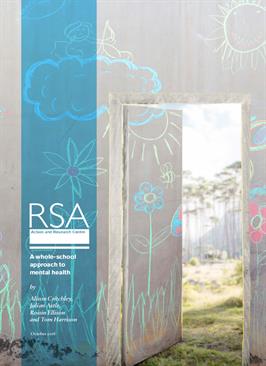It takes more than teachers to improve students’ mental health at school.
This research found that providing mental health awareness training for school staff had significant positive effects on their confidence, mental health literacy, perception of the school as a supportive environment, and behaviour in supporting pupils.
The research also highlighted the importance of including all staff in efforts to support student’s mental health. Non-teaching staff often have close relationships with students and see them outside of the classroom, in places where mental health issues can be more visible.
We provided training in seven schools, six of them RSA Academies, in the academic year 2017-18.
These schools reflected the national trend, with increases in the amount and severity of mental health problems faced by students. They told us this was caused by the impact of social media, as well as economic deprivation, more pressure at school on exams and results, and the lack of specialised support services.
The training was designed to empower staff to support students suffering from low and moderate mental health problems before those problems escalate.
We hope that this positive result will build the evidence base for a whole school approach, in contrast to those based on a lead practitioner for mental health in schools.
Download 'A whole school approach to mental health' (PDF, 550 KB)
Research supported by: Pears Foundation & RSA Academies
pdf 550.7 KB
Contributors





Join the discussion
Comments
Please login to post a comment or reply
Don't have an account? Click here to register.
Any incidence of poor mental health has to be addressed and related initiatives in schools must be fully resourced. But there is no evidence (certainly none adduced here) that the mental health of the young is deteriorating or that social media is making things worse. Why say so?
Must RSA hyperbolise everything?
Yes, This is true that for school staff, Training resources should provided for the mental health and well being. Its really an appreciative work that should be done by school staff.I hope that this results positive which will build the evidence base for a whole school approach, in contrast with lead practitioner for mental health in school.
- Emma Jasmine
I wonder if the training resources are available to other schools and academies wishing to implement a whole-school approach to mental health and well-being?